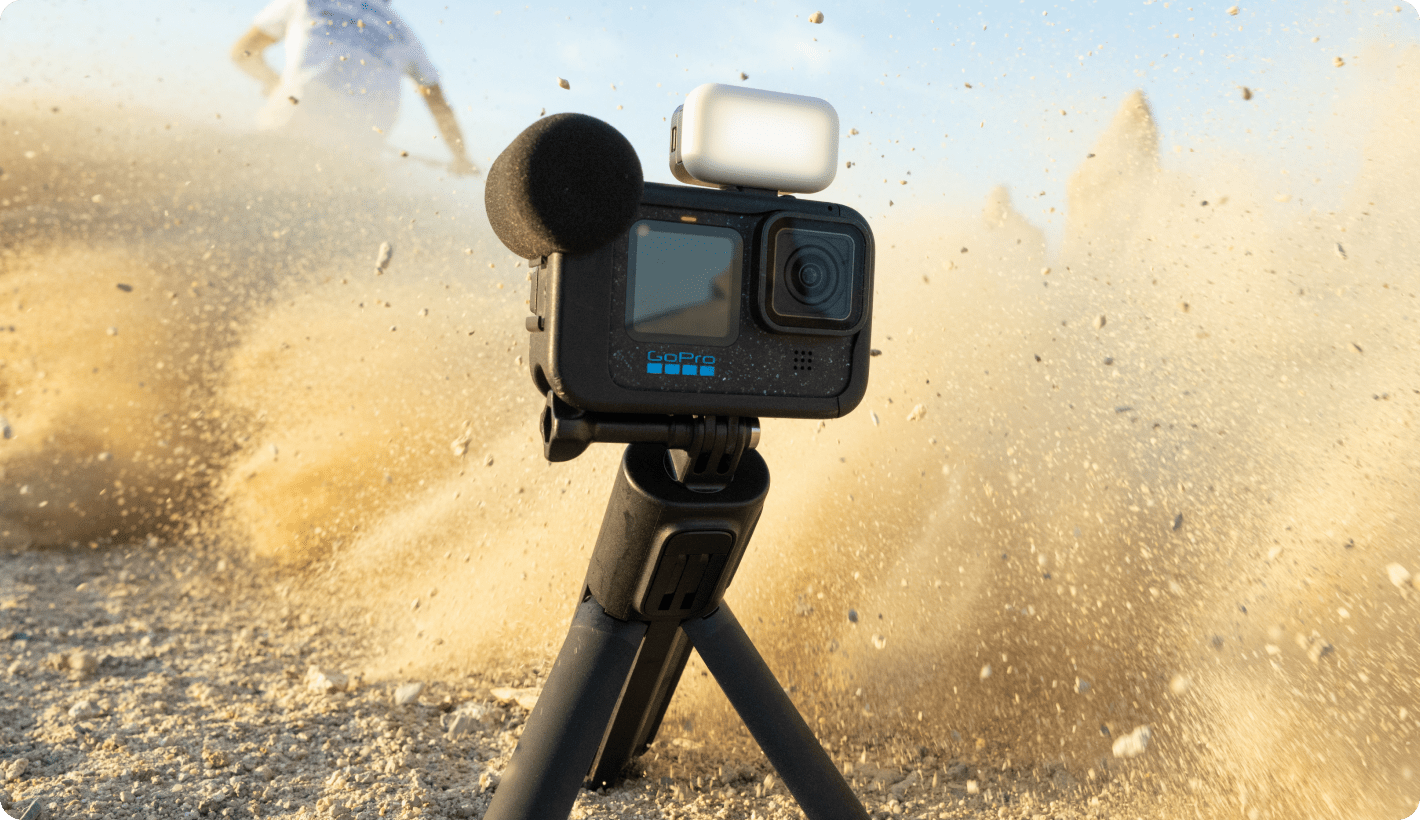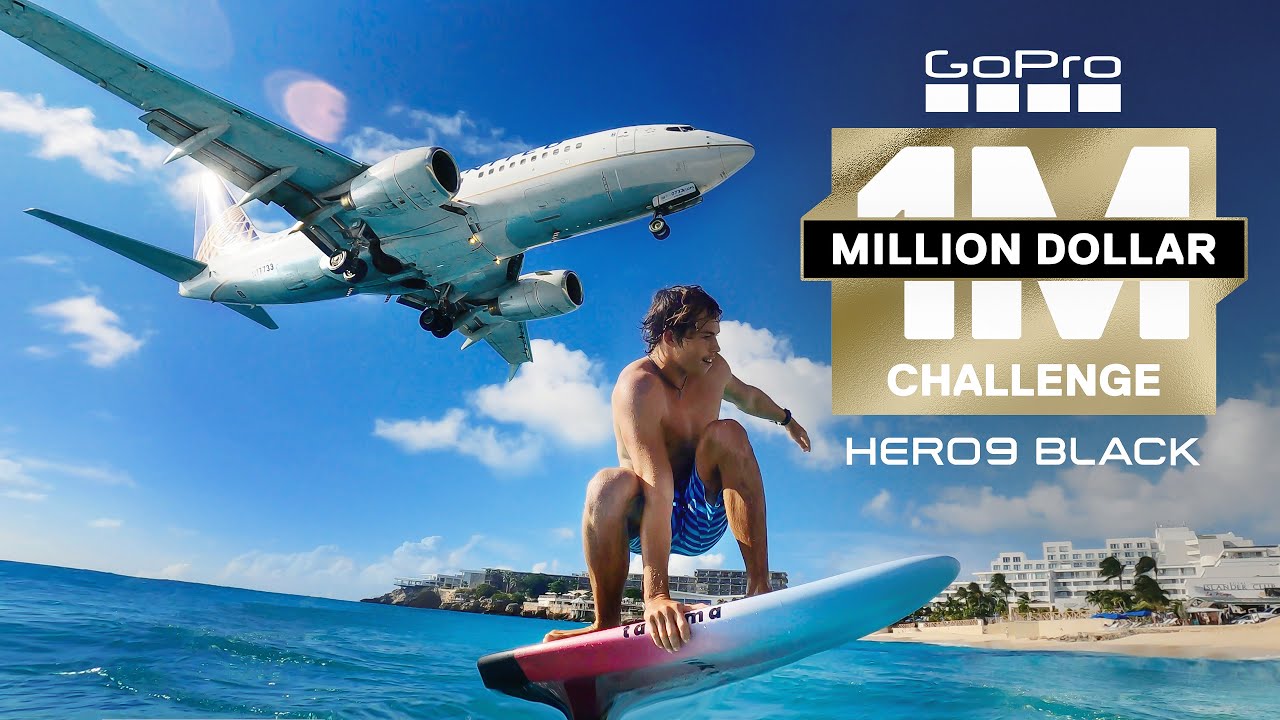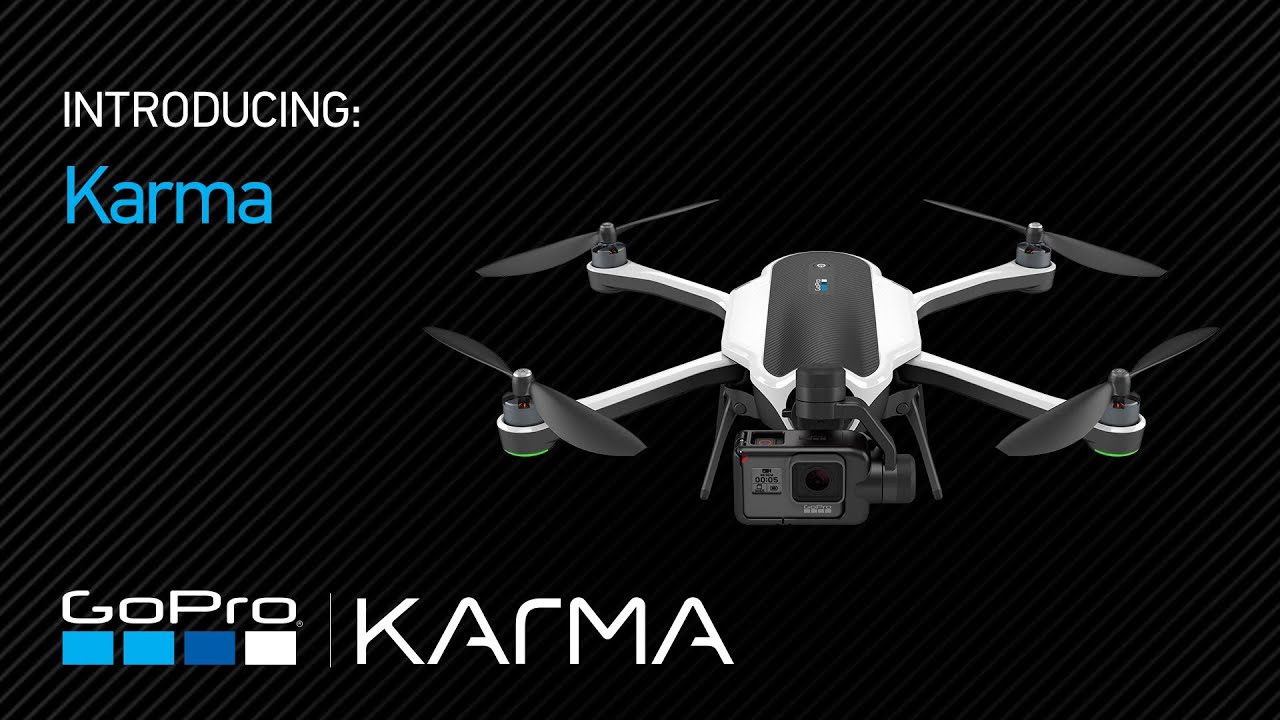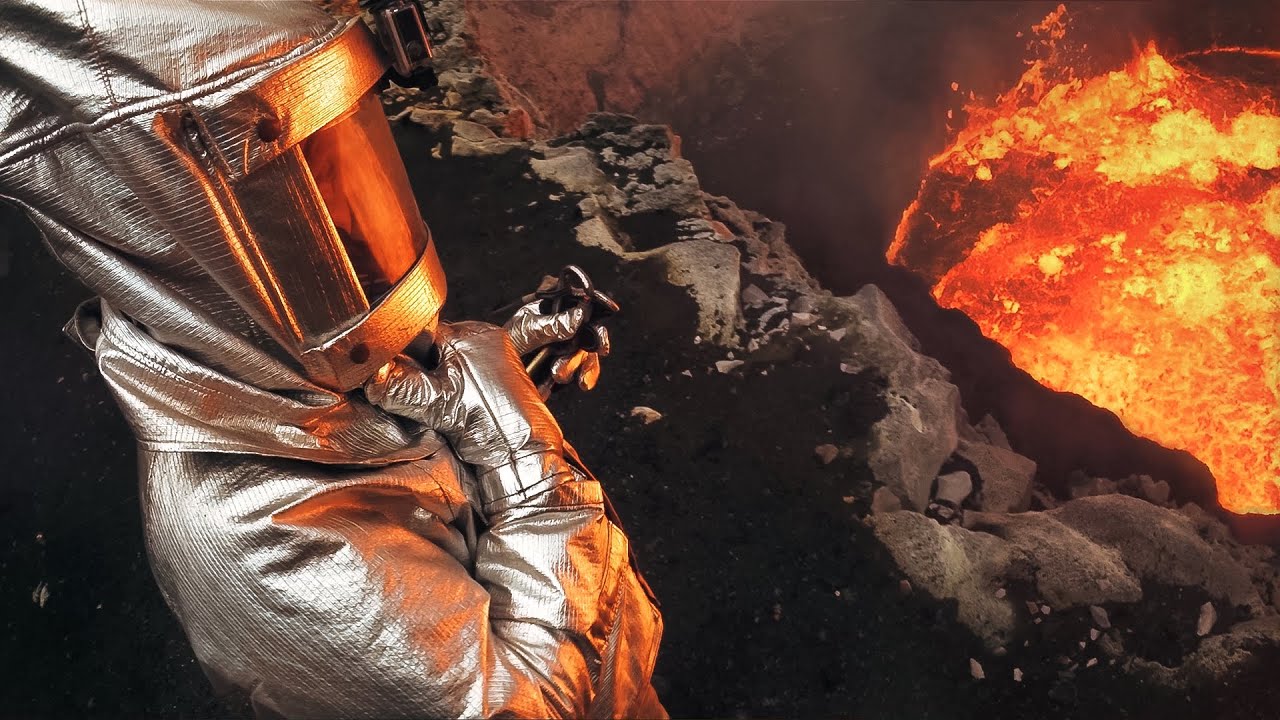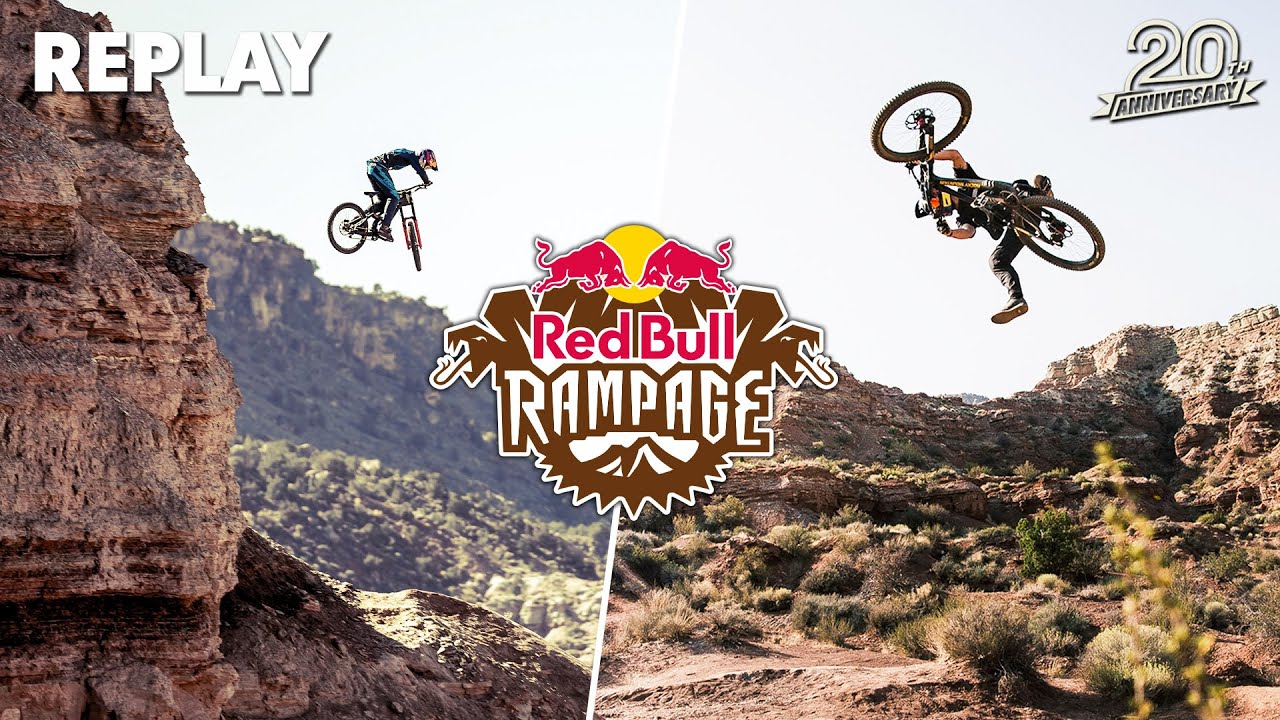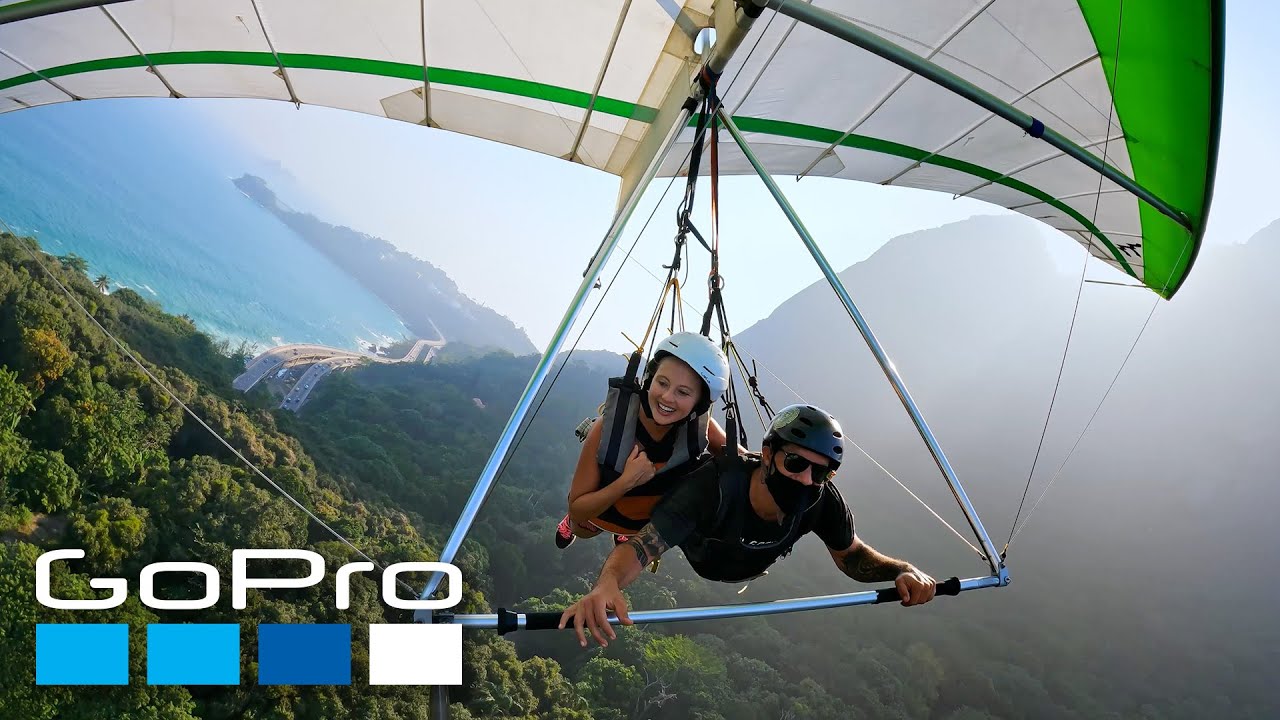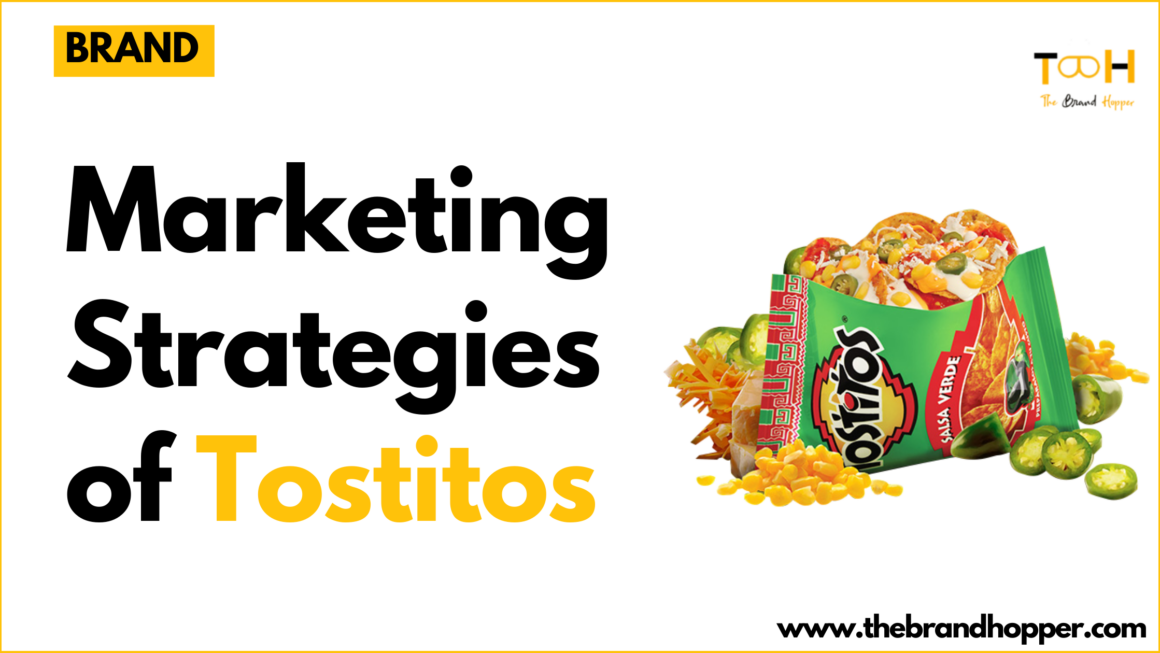GoPro is a brand synonymous with adventure, innovation, and the spirit of capturing life’s most thrilling moments. Founded in 2002 by Nick Woodman, GoPro began as a simple idea to help surfers capture their experiences on the waves. What started as a small, bootstrapped company selling 35mm film cameras encased in waterproof housings has grown into a global phenomenon, revolutionizing the way we document and share our lives. GoPro’s journey from a niche product for extreme sports enthusiasts to a mainstream brand with a cult-like following is a testament to the company’s relentless focus on innovation, community building, and marketing.

The inspiration behind GoPro came from Woodman’s desire to capture high-quality footage of his surfing adventures. On a trip to Australia and Indonesia, he realized that there wasn’t a camera available on the market that could withstand the harsh conditions of surfing while delivering professional-grade footage. This insight led Woodman to develop the first GoPro camera, which was essentially a waterproof wrist strap that could hold a disposable camera. With an initial investment of $10,000 of his own savings and $260,000 borrowed from his parents, Woodman launched GoPro. The name itself is a nod to the brand’s mission: to empower people to “go professional” by capturing and sharing their experiences in the best possible way.
GoPro’s first product, the GoPro HERO 35mm, was launched in 2004 and sold at a modest price of $30. The camera was marketed primarily to surfers, but it quickly caught the attention of other extreme sports enthusiasts, including snowboarders, skiers, mountain bikers, and skydivers. The HERO’s rugged design, combined with its affordability and ease of use, made it an instant hit. By 2006, GoPro had moved from film to digital with the launch of the Digital HERO, further solidifying its place in the market.
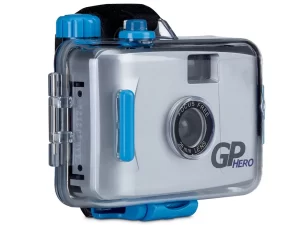
What truly set GoPro apart from other camera brands was its ability to foster a strong community of users who became passionate advocates for the brand. GoPro encouraged its customers to share their footage, turning users into content creators and brand ambassadors. This user-generated content strategy was ahead of its time, allowing GoPro to build a vast library of authentic, high-octane footage that showcased the capabilities of its cameras. The brand’s YouTube channel, launched in 2009, became a hub for this content, featuring everything from extreme sports highlights to breathtaking natural scenery, all captured by GoPro cameras.
As GoPro’s popularity grew, so did its product offerings. The brand continuously innovated, introducing new camera models with improved features, such as HD video recording, Wi-Fi connectivity, and waterproof capabilities without the need for an external housing. The GoPro HERO3, launched in 2012, was a game-changer, offering 4K video recording at a time when 4K was still a novelty in consumer electronics. This model, along with its successors, helped GoPro maintain its position as the leader in the action camera market.
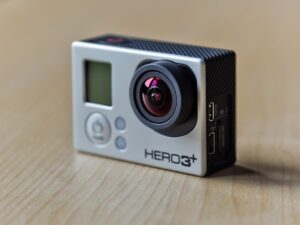
In addition to its hardware, GoPro expanded its ecosystem with a range of accessories, editing software, and even a cloud-based platform for storing and sharing footage. The company’s dedication to providing a comprehensive solution for content creation and sharing further strengthened its brand loyalty. GoPro also ventured into the drone market with the launch of the GoPro Karma in 2016, although this product faced challenges and was eventually discontinued.
GoPro’s marketing strategy has always been a key driver of its success. The brand’s iconic slogan, “Be a HERO,” resonates deeply with its target audience, inspiring them to push their limits and capture their adventures. GoPro’s use of social media, particularly YouTube and Instagram, has been instrumental in building its brand identity. The company’s social media channels are filled with awe-inspiring content from users around the world, further fueling the aspirational appeal of the brand.
Despite facing challenges in recent years, including increased competition and fluctuating sales, GoPro remains a powerful brand with a loyal following. The company has responded to these challenges by diversifying its product line, improving its software offerings, and focusing on its core strengths of innovation and community engagement. In 2020, GoPro introduced the HERO9 Black, which features 5K video recording, a front-facing display, and improved stabilization technology, reaffirming its commitment to staying at the forefront of the action camera market.
As GoPro looks to the future, the company continues to explore new opportunities in areas such as virtual reality, live streaming, and content monetization. With its strong brand equity, innovative spirit, and dedicated community of users, GoPro is well-positioned to continue inspiring adventurers and content creators around the world for years to come. Whether you’re a professional athlete, a casual traveler, or someone who simply wants to document life’s moments, GoPro’s mission remains clear: to help you capture and share your world like never before.
Marketing Strategies of GoPro
GoPro’s marketing strategies have played a significant role in establishing the brand as a leader in the action camera market. These strategies are multi-faceted, leveraging content creation, community engagement, strategic partnerships, and digital innovation to maintain GoPro’s relevance and appeal to a broad audience. Below is a detailed explanation of the key marketing strategies employed by GoPro:
1. User-Generated Content (UGC)
GoPro’s approach to marketing is like handing the keys of the brand’s Ferrari to its fans and letting them drive wild—and it works like a charm. Instead of relying on traditional marketing, GoPro decided to let their customers do the talking (or filming, rather). With campaigns like the “GoPro Awards,” users submit their wildest, most epic shots, competing for cash, gear, and the chance to be showcased on GoPro’s global platforms. It’s like a talent show for thrill-seekers, and the results are nothing short of spectacular.
Take the “Million Dollar Challenge,” for instance—a campaign where GoPro users from around the world submit their most jaw-dropping videos shot with the latest GoPro model. The prize? A cool $1 million split among the best submissions. In 2024, the challenge saw a whopping 43,000 submissions from 21 countries, proving that people will go to great lengths (sometimes literally, off a cliff) to capture that perfect shot. The top 55 clips made it into a highlight reel that’s used in GoPro’s ads, social media, and even TV spots. It’s like a never-ending fountain of epic content that keeps the brand on top of its game.
But GoPro doesn’t stop there—they’ve created a whole ecosystem where UGC is king. From the #GoProHero hashtag that turns everyday users into GoPro stars to their dedicated YouTube channel filled with user-created content, GoPro has tapped into the ultimate marketing goldmine. They’ve even created a backend content hub where all these user-generated clips live, ready to be used in everything from social posts to packaging designs. It’s like having an endless supply of blockbuster footage, all created by the very people who love the brand the most
By letting their community take the reins, GoPro has created a brand that’s not just about selling cameras—it’s about capturing life’s most exhilarating moments. And the best part? It’s all fueled by the creativity of their users, making GoPro not just a product, but a lifestyle.
2. Social Media and Digital Marketing
GoPro’s social media prowess is nothing short of legendary. The brand has masterfully transformed platforms like Instagram, YouTube, and Facebook into immersive showcases of adventure and adrenaline. By leveraging stunning user-generated content, GoPro turns everyday users into global storytellers, inspiring millions to capture and share their own epic moments.
One of GoPro’s most iconic digital campaigns is the #GoProAwards program. This ongoing contest invites users to submit their best photos and videos for a chance to win cash prizes and be featured on GoPro’s official channels. Not only does this flood their feeds with authentic and awe-inspiring content, but it also fosters a strong sense of community among users who share a passion for adventure and creativity.
Remember the “Everything We Make” launch on YouTube? GoPro utilized its channel to debut a series of videos showcasing the capabilities of their new product lineup. By featuring real-life scenarios and user experiences, these videos garnered millions of views, effectively demonstrating the versatility and performance of GoPro cameras in a way that traditional advertising couldn’t match.
GoPro’s Instagram game is equally impressive. With curated feeds that feature breathtaking shots from around the world, they’ve amassed a following of over 17 million users. Campaigns like #GoProGirl have been instrumental in highlighting female adventurers and creators, promoting diversity and inclusivity within the community. This not only broadens their audience but also encourages more users to share their unique perspectives.
In the realm of live streaming, GoPro has harnessed platforms like Facebook Live to engage with their audience in real-time. Events such as the “GoPro Mountain Games” were streamed live, allowing viewers worldwide to experience the thrill of extreme sports events as they unfolded. This strategy has helped in creating immersive and interactive experiences, deepening the connection between the brand and its audience.

Collaborations have also played a pivotal role in GoPro’s digital marketing success. Partnerships with influencers and athletes, such as pro surfer Kelly Slater and skateboarder Ryan Sheckler, have generated buzz and showcased the camera’s capabilities in action-packed environments. These collaborations result in high-impact content that resonates with fans and inspires them to embark on their own adventures.
GoPro doesn’t shy away from embracing emerging platforms either. They’ve ventured into TikTok, capitalizing on the platform’s virality to reach younger audiences. Challenges like the #GoProMillionDollarChallenge have seen users creating and sharing creative short-form content, further expanding GoPro’s digital footprint and reinforcing its image as a fun and innovative brand.
Moreover, GoPro’s email marketing campaigns are tailored to keep their community engaged and informed. Regular newsletters featuring “Featured Creator” spotlights, tips for capturing better footage, and exclusive deals help in maintaining a loyal customer base while encouraging repeat engagement and purchases.
By integrating SEO strategies into their digital content, GoPro ensures that their tutorials, product reviews, and adventure stories rank high on search engines. This not only drives organic traffic to their website but also positions GoPro as an authority in adventure photography and videography.
In summary, GoPro’s dynamic use of social media and digital marketing revolves around celebrating user experiences, leveraging authentic content, and staying ahead of digital trends. This approach has not only solidified their position in the market but has also built a vibrant, engaged, and ever-growing community of content creators and adventure enthusiasts around the globe.
3. Product Innovation and Differentiation
GoPro’s product innovation and differentiation strategy is all about pushing the boundaries of what action cameras can do—and doing it with style. From the very beginning, GoPro set itself apart by creating cameras that are not just durable and waterproof but also incredibly compact and versatile. The magic started with the GoPro HERO series, which quickly became the go-to gadget for adventurers and thrill-seekers everywhere.
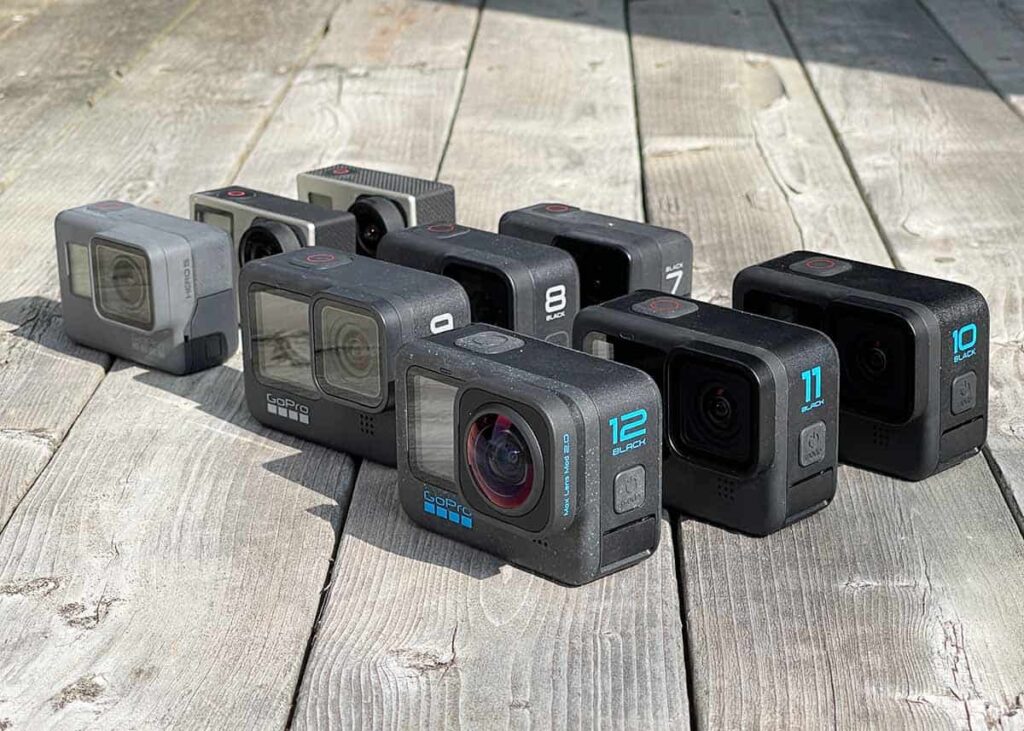
One of the most significant innovations was the introduction of 4K video recording in the HERO4, making GoPro one of the first companies to bring ultra-high-definition video to the masses. This leap in quality wasn’t just a tech upgrade—it was a game-changer for content creators who wanted to capture their experiences in stunning detail. The HERO4 became a favorite among vloggers, extreme sports enthusiasts, and even filmmakers, helping GoPro solidify its position as a leader in the action camera market.
GoPro also differentiated itself through unique features like voice control and GPS tracking in the HERO5 series. These features made it easier for users to capture hands-free footage and track their adventures, which was especially popular among cyclists, hikers, and runners. The HERO5 Black became a best-seller, and GoPro’s creative campaigns, like the “Capture Different” campaign, highlighted how these new features could be used in everyday life and extreme adventures alike.
Another standout in GoPro’s innovation lineup is the GoPro MAX, a 360-degree camera that allows users to capture immersive footage that can be edited into both traditional video and VR experiences. The GoPro MAX was part of the brand’s push to explore new dimensions in content creation, offering features like Max HyperSmooth stabilization and PowerPano for ultra-wide shots. This product appealed not only to extreme sports fans but also to creative professionals looking to push the boundaries of storytelling.
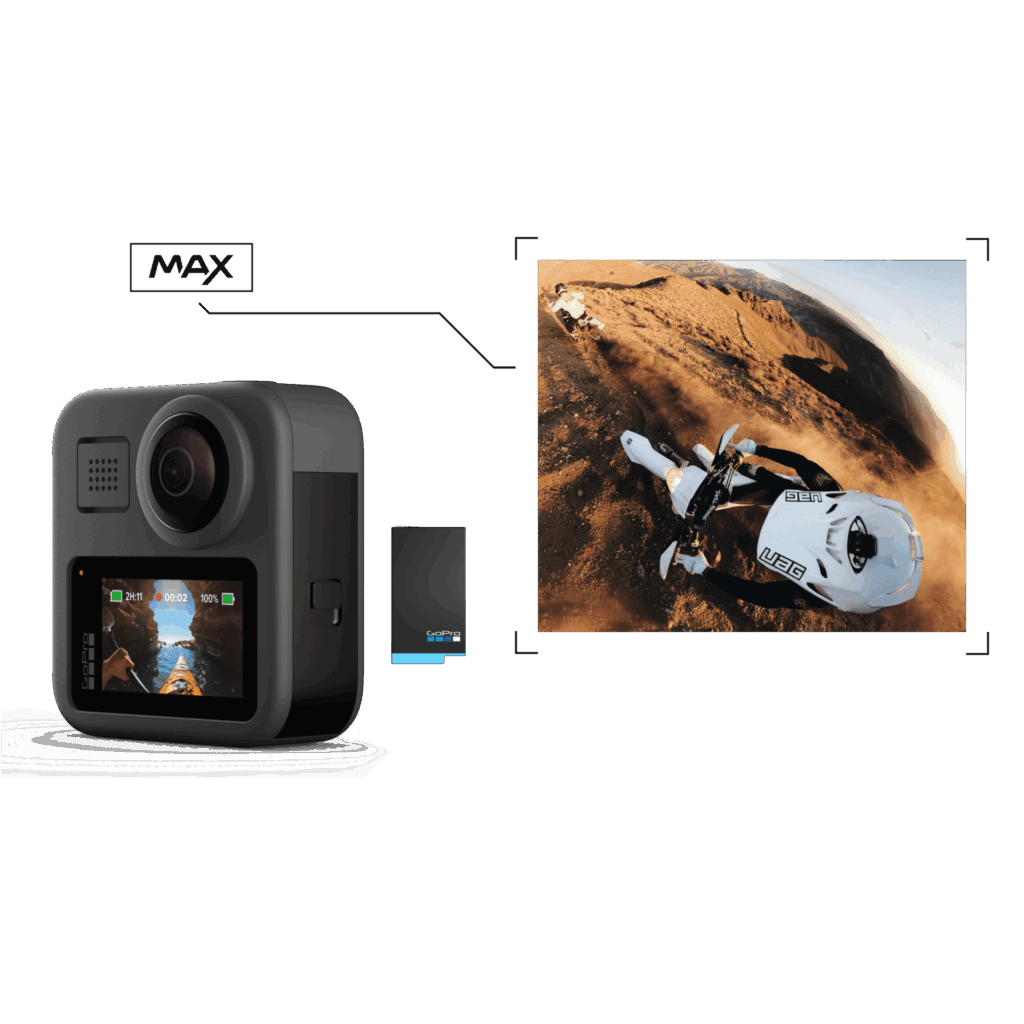
GoPro’s dedication to innovation extends beyond hardware to software, too. The GoPro Quik app is a prime example, offering users an intuitive way to edit their footage on the go. With features like auto-editing and music synchronization, the Quik app makes it easy for anyone, regardless of skill level, to create professional-looking videos. This focus on user-friendly software has helped GoPro maintain a loyal customer base and attract new users who might be intimidated by more complex editing tools.
In the realm of differentiation, GoPro also introduced a range of accessories that enhance the versatility of its cameras. From mounts and straps to the GoPro Karma drone, these accessories turn GoPro cameras into a complete ecosystem for capturing footage from any angle or activity. This not only sets GoPro apart from competitors but also encourages users to stick with the brand as their adventure needs evolve.
GoPro’s “Adventure of Life” marketing campaign perfectly encapsulated their product differentiation strategy by showcasing real users putting GoPro’s innovative features to the test in various extreme environments. The campaign was a massive hit, further solidifying GoPro’s image as the ultimate companion for thrill-seekers and creative professionals alike.
In short, GoPro’s focus on continuous product innovation and strategic differentiation has kept the brand ahead of the curve, ensuring that whether you’re surfing the waves, scaling a mountain, or just biking through the park, there’s a GoPro product that’s perfect for capturing your story in a way that no other camera can
4. Strategic Partnerships and Sponsorships
GoPro’s strategic partnerships and sponsorships are a big part of why the brand is synonymous with adventure and extreme sports. By teaming up with like-minded brands and athletes, GoPro has been able to reach new audiences and cement its reputation as the go-to camera for capturing epic moments. One of the most iconic partnerships is with Red Bull, the energy drink brand that’s just as adventurous as GoPro. This partnership, which began in 2016, is all about shared values—both brands thrive on adrenaline, adventure, and pushing boundaries. Through this alliance, GoPro provided point-of-view imaging technology for Red Bull events, and in return, GoPro content was featured prominently in Red Bull’s marketing materials, including high-octane events like the Red Bull Rampage.
Another stellar example is GoPro’s sponsorship of athletes like Shaun White, the legendary snowboarder and skateboarder. GoPro cameras have been there to capture his gravity-defying tricks, giving fans a front-row seat to his incredible talent. This partnership not only highlights the camera’s capabilities but also associates GoPro with top-tier athletic performance. Videos of White using GoPro products have garnered millions of views, reinforcing the brand’s presence in the extreme sports community.
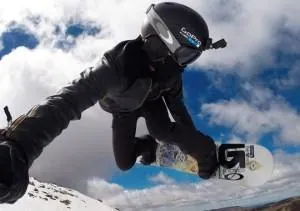
GoPro has also ventured into the world of motorsports through partnerships with brands like MotoGP and NASCAR. By providing cameras to capture the fast-paced, high-adrenaline action from the driver’s perspective, GoPro has brought fans closer to the experience than ever before. The footage is often used in broadcasts and social media, showing off GoPro’s ability to capture every heart-pounding moment in crystal-clear quality.
One of the more creative partnerships was with Virgin America, where GoPro provided in-flight entertainment featuring stunning, user-generated GoPro content. Passengers could watch jaw-dropping adventures from around the world, all shot on GoPro cameras. This partnership not only provided unique content for Virgin America’s passengers but also introduced GoPro to a broader audience of travelers who might not yet be familiar with the brand.
In addition to these high-profile partnerships, GoPro has also sponsored numerous events and athletes in the surfing, skiing, and cycling worlds. By aligning itself with events like the X Games and sponsoring athletes who push the limits in their sports, GoPro ensures that its cameras are seen as an essential part of the gear for anyone looking to capture their adventures. These partnerships are not just about visibility—they’re about embedding GoPro deeply into the culture of action sports.
Through these strategic partnerships and sponsorships, GoPro continues to reinforce its brand image as the ultimate tool for capturing the most extreme and memorable moments. Whether it’s soaring through the air with a snowboarder or racing down a track with a Formula 1 driver, GoPro is there, making sure every moment is immortalized in stunning detail.
5. Experiential Marketing and Events
GoPro’s experiential marketing is all about diving headfirst into adventure—and making sure everyone knows about it. Take the “GoPro Mountain Games” in Vail, Colorado. This isn’t just another outdoor event; it’s an all-out showcase of everything GoPro cameras can do. Whether you’re kayaking, rock climbing, or just watching, GoPro lets you capture the action with their latest gear and instantly share it with the world. It’s like a live-action demo, where the product is in its natural habitat—on the edge of extreme sports.
Then there’s the “GoPro Roadshow,” a traveling carnival of adrenaline that pops up at major extreme sports events globally. Imagine this: You’re at a surf comp in Hawaii or a BMX jam in California, and there’s GoPro, ready to strap a camera on you and let you dive into the action. You get your adventure captured, watch it live on big screens, and boom—your experience becomes part of GoPro’s epic content library.
GoPro also knows how to surprise fans with their pop-up shops. Picture this: You stroll into a New York City shop, and suddenly you’re surfing or skydiving—virtually, of course—with a GoPro capturing every scream and smile. These pop-ups are more than just stores; they’re mini-adventures packed with exclusive gear and unforgettable experiences.
And let’s not forget the GoPro Creator Summits, where the brand gathers top influencers for a weekend of adventure and content creation. It’s an invite-only affair where creators get hands-on with GoPro gear, learn new tricks, and, of course, create some jaw-dropping content that’s shared across the brand’s channels. It’s GoPro’s way of saying, “You’re part of the family now.”
In short, GoPro’s experiential marketing isn’t just about showing off their cameras; it’s about letting people live the adventure, capture it, and then share it with the world. Whether through massive public events or exclusive gatherings, GoPro ensures their brand is always at the heart of the action.
6. Customer-Centric Approach
GoPro’s customer-centric approach is all about making sure the customer is always in the driver’s seat—literally. Instead of just pumping out products, GoPro listens closely to what its users want and need. When customers asked for better stabilization, GoPro didn’t just take notes; they delivered HyperSmooth stabilization in the HERO7, turning shaky adventures into smooth cinematic gold. This wasn’t just a cool upgrade; it was a direct response to what users were craving.
But GoPro’s love for its customers doesn’t stop at tech tweaks. They introduced the GoPro Plus subscription service, which offers unlimited cloud storage, discounts on gear, and even hassle-free camera replacements. Why? Because GoPro knows that capturing epic moments should be as worry-free as possible. It’s like having a safety net for your adventures—just in case your camera takes a dive off a cliff (literally).
Then there’s the “GoPro Million Dollar Challenge,” where users submit their best footage for a chance to win big. This isn’t just a contest; it’s GoPro saying, “We see you, and we want to show the world what you can do.” Thousands of users jump in each year, turning them into brand ambassadors who create authentic, jaw-dropping content that’s way more relatable than a traditional ad.
GoPro also keeps the conversation going with their online community forums and the GoPro Support Hub. It’s a space where users swap tips, solve problems, and get advice directly from GoPro experts. It’s like a big, friendly club where everyone’s invited, and GoPro is always listening. In short, GoPro’s customer-centric strategy isn’t just about selling cameras—it’s about building a brand that people are genuinely passionate about.
GoPro’s marketing strategies are a masterclass in how to build and maintain a strong brand in a competitive market. By focusing on user-generated content, social media engagement, product innovation, strategic partnerships, experiential marketing, and a customer-centric approach, GoPro has successfully positioned itself as the go-to brand for capturing life’s most exciting moments. As the company continues to evolve, its commitment to empowering users to “Be a HERO” ensures that GoPro will remain a leader in the action camera industry for years to come.
Marketing Mix of GoPro
GoPro’s success in the highly competitive action camera market is not just due to its innovative products but also to its meticulously crafted marketing mix. The 4Ps—Product, Price, Place, and Promotion—have been strategically employed to build and maintain its dominant market position. Here’s a more detailed look at each element.
1. Product
GoPro’s product strategy revolves around continuous innovation, high quality, and versatility. The brand’s flagship product line, the HERO series, is renowned for its durability, compact size, and advanced features like 4K video recording and HyperSmooth stabilization. Each new iteration, from the HERO4, which introduced 4K capabilities, to the HERO10 Black, which boasts a powerful GP2 processor for even smoother footage, reflects GoPro’s commitment to staying at the cutting edge of technology.
In addition to the HERO series, GoPro has diversified its product range to include the GoPro MAX, a 360-degree camera that allows users to capture immersive footage. This product is equipped with features like Max HyperSmooth stabilization and PowerPano, offering users the ability to shoot panoramic images and videos seamlessly. GoPro’s product differentiation doesn’t stop at cameras; they’ve built an entire ecosystem with accessories like mounts, waterproof cases, and even the GoPro Karma drone, which allows for aerial footage. This ecosystem approach ensures that users can tailor their GoPro setup to a wide variety of activities, from deep-sea diving to skydiving.
Furthermore, GoPro’s software offerings, like the GoPro Quik app, play a crucial role in enhancing the user experience. The app’s ability to automatically edit footage, sync it to music, and share it directly to social media platforms makes it an indispensable tool for GoPro users, reinforcing the brand’s value proposition beyond just hardware.
2. Price
GoPro employs a premium pricing strategy that reflects the high-quality, feature-rich nature of its products. The price points for GoPro cameras are set to match the advanced technology they offer. For example, the HERO10 Black was launched at a price of approximately $499, positioning it as a high-end product within the market. This pricing strategy not only reflects the quality and innovation behind GoPro products but also targets a specific segment of consumers—those who are willing to pay more for superior performance and durability.
To cater to different segments, GoPro also offers various models at different price points. The HERO8, for instance, is priced lower than the HERO10, making it accessible to more budget-conscious consumers while still providing high-quality features. Additionally, GoPro has introduced a subscription model with GoPro Plus, where customers pay a monthly fee to access benefits such as unlimited cloud storage, discounts on accessories, and camera replacement services. This subscription model not only adds value to the initial purchase but also fosters customer loyalty by continuously engaging users with the brand.
3. Place
GoPro’s distribution strategy is extensive and multi-faceted, ensuring that their products are available wherever their target customers are. The brand has a strong online presence, with its official website serving as the primary platform for direct sales. The website offers detailed product descriptions, customer reviews, and high-quality images, all designed to facilitate informed purchasing decisions.
Beyond their website, GoPro products are widely available through major online retailers like Amazon, Best Buy, and Walmart. These partnerships ensure that GoPro’s products are easily accessible to a global audience, leveraging the reach of these established e-commerce giants. Additionally, GoPro products are available in physical stores, particularly in electronics and specialty sports stores, where customers can experience the products firsthand before making a purchase. This omni-channel approach ensures that GoPro can meet customers wherever they prefer to shop, whether it’s online or in-person.
GoPro also uses pop-up shops and experiential retail setups in high-traffic areas and at major events. These temporary installations allow customers to interact with the products in a dynamic environment, often set up at extreme sports events or festivals, where potential buyers can see the cameras in action. This strategy not only drives sales but also reinforces the brand’s connection to the adventure and extreme sports community.
4. Promotion
GoPro’s promotional strategy is highly integrated and relies heavily on digital marketing and user-generated content (UGC). The brand’s presence on social media platforms like YouTube, Instagram, and Facebook is robust, with content that showcases the incredible footage captured by GoPro users worldwide. The emphasis on UGC has allowed GoPro to build a strong, authentic brand presence that resonates deeply with its audience. Campaigns like the “GoPro Awards” invite users to submit their best photos and videos, which are then featured on GoPro’s official channels, creating a continuous stream of fresh, engaging content.
One of GoPro’s most successful promotional campaigns is the “Million Dollar Challenge,” where users submit their best footage for a chance to win a share of $1 million. This campaign has generated thousands of submissions each year, providing GoPro with high-quality content that is then used in their marketing materials. The #GoProHero and #GoProAwards hashtags on social media have become synonymous with adventure and creativity, driving both brand visibility and engagement.
In addition to digital marketing, GoPro engages in strategic partnerships and sponsorships. Collaborations with extreme sports events like the X Games and partnerships with athletes such as Shaun White help to position GoPro as the camera of choice for professionals and enthusiasts alike. These partnerships not only enhance GoPro’s credibility in the extreme sports community but also provide content that is used in promotional campaigns, further reinforcing the brand’s adventurous image.
GoPro also invests in experiential marketing, organizing events like the GoPro Mountain Games and GoPro Roadshow, where participants can try out the latest GoPro products in action-packed settings. These events allow potential customers to experience the product’s capabilities firsthand, creating memorable experiences that drive word-of-mouth marketing and social media buzz.
GoPro’s Marketing Mix is a well-coordinated strategy that leverages product innovation, premium pricing, extensive distribution channels, and a dynamic promotional strategy to maintain its leadership in the action camera market. By focusing on continuous innovation and a deep understanding of its customer base, GoPro has built a brand that is not only trusted by adventure enthusiasts but also admired for its ability to capture the extraordinary in everyday life.
Also Read: Marketing Strategies and Marketing Mix of Red Bull
To read more content like this, subscribe to our newsletter

